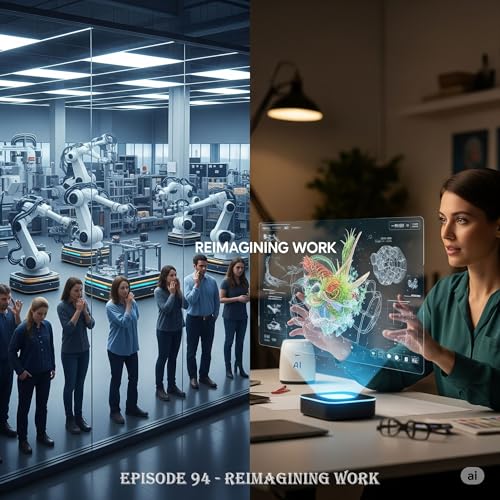
Episode 94 – Reimagining Work
No se pudo agregar al carrito
Add to Cart failed.
Error al Agregar a Lista de Deseos.
Error al eliminar de la lista de deseos.
Error al añadir a tu biblioteca
Error al seguir el podcast
Error al dejar de seguir el podcast
-
Narrado por:
-
De:
This episode examines how the fundamental nature of modern AI as a prediction engine is poised to reshape the economy, the nature of work, and even our understanding of reality. It argues that the current AI wave represents a higher-order technology, engaging with the basic principles of intelligence and life itself, much like the steam engine or electricity transformed previous centuries. The core shift is from traditional logic-based computing to machine learning systems that excel at making statistically-driven predictions based on massive datasets.
A central theme is that the human brain itself operates as a prediction machine, constantly building and refining an internal model of the world based on sensory-motor feedback. Our conscious experience is not a direct feed of reality but a simulation generated by the neocortex, which uses thousands of "reference frames" to understand objects and concepts. This biological architecture helps explain why we can form strong connections with AI companions; their simulated empathy feels real because our own reality is already a cognitive construct.
This understanding leads to a critical analysis of the future of work, where AI's predictive power is automating tasks rather than entire jobs. While this displaces routine work, it also creates an opportunity for human-AI co-intelligence, where AI handles prediction and humans provide the crucial element of judgment and defining the goals. The episode concludes by highlighting the importance of "Reward Function Engineering" (RFE), framing the most valuable human skill in the AI era as the ability to wisely define the objectives, values, and utility functions that AI systems will be tasked to optimize. Ultimately, our role shifts from making predictions to providing the judgment that steers the prediction engines.


